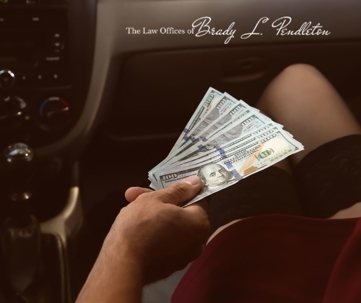Understanding Prostitution Laws in Texas
Navigating the legal system can be overwhelming, especially when it comes to complex issues like prostitution laws. Whether you’re looking to educate yourself, someone you care about is facing charges, or you're simply curious about how Texas handles these cases, understanding the basics can make a big difference.
Here’s a breakdown of the key points you need to know about prostitution laws in Texas—and what you can do if you or a loved one is in need of legal help.
What Does Texas Law Say About Prostitution?
The Legal Definition of Prostitution
Texas law defines prostitution under Section 43.02 of the Texas Penal Code. At its core, it’s the act of offering or agreeing to engage in sexual conduct for a fee—this applies both to the person providing the service and the one seeking it. However, the law distinguishes prostitution from offenses like solicitation (enticing someone into prostitution) and human trafficking (exploitation through force, fraud, or coercion).
It’s not just a moral issue—it’s a legal one. A prostitution charge can have serious consequences, including a criminal record, which could harm future employment opportunities and social relationships.
Offenses and Penalties
Prostitution-related charges vary in severity. A first offense is usually a Class B misdemeanor, carrying up to 6 months in jail and fines of up to $2,000. If it’s not your first time being charged or there are aggravating circumstances, the penalties get harsher. Things like involvement of minors or multiple prior convictions could lead to felony charges, resulting in lengthy jail time and significant fines. Texas law doesn’t take these offenses lightly—especially when it comes to protecting minors.
Breaking Down the Texas Penal Code
Relevant Legal Sections
The Texas Penal Code outlines prostitution under Section 43.02 and related offenses like promotion of prostitution under Section 43.03. This doesn’t just cover selling or paying for sexual services. It also targets those who profit from others, such as operators of brothels or pimps. Over time, state lawmakers have tightened these laws, especially around cases involving trafficking or exploiting minors.
What Buyers and Sellers Need to Know
Both sides of the transaction—buyers and sellers—face legal consequences. Sellers may deal with hefty fines and jail time, but buyers, often referred to as “Johns,” aren’t off the hook. They, too, face charges designed to make seeking these services less attractive. Texas tackles prostitution by addressing not just the supply but the demand as well, striving for safer communities for everyone.
What Happens If You’re Charged?
Arrest and Legal Process
Once arrested for alleged prostitution, the process can feel intimidating. Law enforcement often uses sting operations to gather evidence before making arrests. After the arrest, legal proceedings begin, and you’ll need to mount a defense while the state tries to prove its case. This process can feel overwhelming without strong legal representation to guide you through each step.
How Legal Defenses Work
Defenses against prostitution charges often focus on intent and how the evidence was collected. For instance, entrapment—where law enforcement pressures someone into committing a crime they wouldn’t have otherwise considered—is a common defense. A skilled attorney can also argue lack of intent or errors in the evidence against you. The right representation can make all the difference in how your case plays out.
The Bigger Picture
Community and Social Impact
The effects of prostitution convictions go far beyond the courtroom. A criminal record can lead to discrimination, hinder employment opportunities, and even trap individuals in cycles of poverty. Entire communities can also suffer, with increased local crime rates and decreased property values in areas with high prostitution activity. It’s a cycle that’s tough to break without legal reforms and social interventions.
Helpful Programs and Services
Luckily, there’s hope. Many programs across Texas work to help individuals exit prostitution and rebuild their lives. Rehabilitation programs, counseling, and job training give people the resources they need to start fresh. Community outreach and local organizations also play a vital role in offering support and reducing the prevalence of prostitution in the first place.
Ongoing Debates About Prostitution Laws
Legalization vs. Decriminalization
Should prostitution laws change? It’s a divisive question. Those in favor of decriminalization argue that removing penalties could reduce stigma, improve workplace safety, and allow for better regulation. Others worry that decriminalization could encourage exploitation, trafficking, and abuse. The state continues to grapple with these complex issues, aiming for policies that protect residents and reflect Texas values.
Concerns About Human Trafficking
One major concern tied to prostitution laws is human trafficking. Many individuals involved in the sex trade are victims of coercion, abuse, or exploitation. That’s why addressing trafficking is a critical part of Texas’s legal efforts, with tougher penalties for traffickers and resources to support victims. Advocacy groups and law enforcement are working together to protect vulnerable individuals and tackle the root causes of this issue.
Need Legal Help? Call Us Today
If you or someone you care about is facing prostitution charges, you don’t have to face it alone. At the Law Offices of Brady L. Pendleton, we specialize in helping people like you understand the laws and build a strong defense. We’re here to fight for your rights, protect your future, and guide you through every step of the legal process.
Give us a call today at (888) 246-6869. Don’t wait—your future matters, and we’re ready to help.

